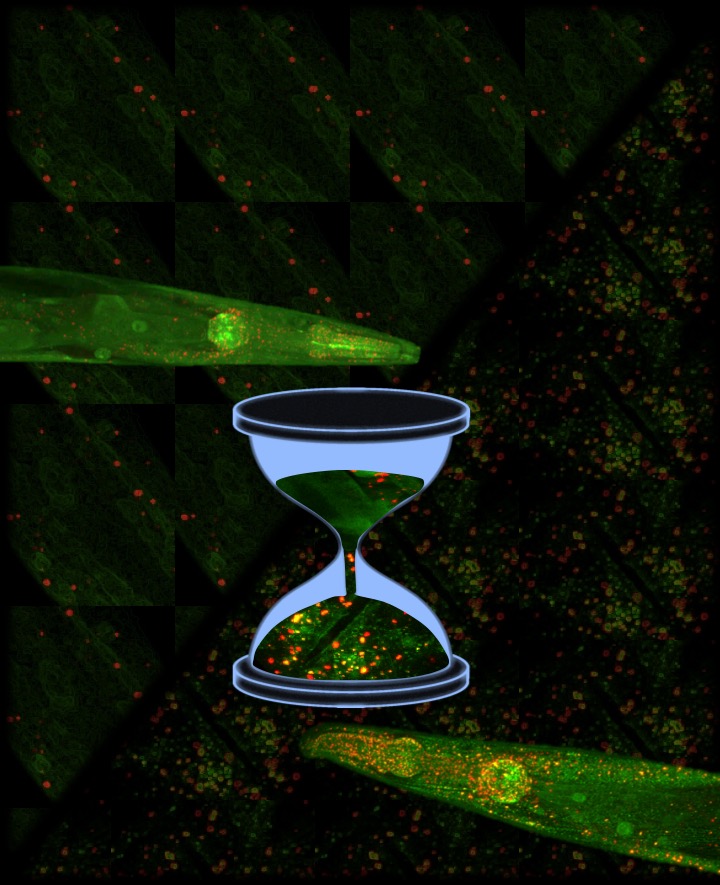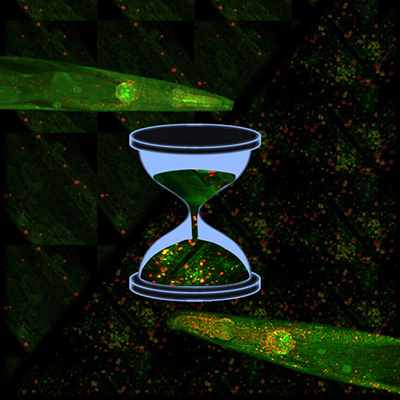Announcements

IMBB researchers reveal a novel mechanism regulating protein synthesis and ageing
Research at the Institute of Molecular Biology and Biotechnology, published in the international scientific journal Cell Reports reveals a novel molecular mechanism that modulates protein synthesis to preserve protein homeostasis during ageing.
Ageing is a natural degradation process that dramatically impacts the quality of human life and society. Although ageing is a fundamental biological phenomenon and is experienced by the vast majority of living organisms, it remains poorly understood.

Recently, an intriguing association between the cellular process of protein synthesis and ageing emerged. In many organisms, including humans, ageing is accompanied by marked alterations in protein synthesis, leading to senescent decline. Protein synthesis is one of the most energy-demanding cellular processes, consuming almost 50% of the total energy produced by the cell. Conversely, downregulation of protein synthesis would generate an energy surplus that becomes available for investment in mechanisms of cellular repair and maintenance, eventually promoting survival. However, despite its importance for the ageing process, the regulation of protein synthesis remains poorly characterised.
By using a simple model organism, the nematode Caenorhabditis elegans, the IMBB researcher Dr. Matthias Rieckher (now Senior Scientist at the Cluster of Excellence for Aging Research in Cologne; CECAD) together with collaborators Dr. Maria Markaki (Principal Staff Scientist, IMBB), Andrea Princz (IMBB) and Dr. Bjӧrn Schumacher (Professor at the Medical School, University of Cologne and CECAD), headed by Dr. Nektarios Tavernarakis (Professor at the Medical School, University of Crete, and Chairman of the Board, FORTH) have uncovered a novel mechanism controlling protein synthesis in somatic tissues during ageing.

The researchers focused their attention on the recently discovered Processing (P) bodies, which are microscopic cytoplasmic foci where mRNAs are either stored or degraded. P bodies occur in all cells and their functions seem to be conserved from simple model organisms to humans. The new findings showed that P bodies progressively accumulate in somatic tissues with age in C. elegans. The eukaryotic translation initiation factor eIF4E, which plays a key role in mRNA translation, is entrapped in P bodies during ageing and upon stress. Loss of specific P body components causes further entrapment of eIF4E in P bodies and lowers protein synthesis, leading to increased stress resistance and longevity.
The study of the IMBB investigators reveals an elegant molecular mechanism, by which P bodies control the availability of eIF4E for mRNA translation under stress and during ageing in the soma. Given that the abundance of eIF4E is increased in several pathological conditions (including many human malignancies), this mechanism is crucial for maintaining cellular and organismal homeostasis so keeping aged animals healthy.
The evolutionary conservation of the regulatory factors involved suggests that similar mechanisms operate in higher organisms, including humans. Elucidation of the basic molecular mechanisms underlying the collapse of protein homeostasis that accompanies ageing will facilitate the development of novel, targeted and personalised interventions aiming to battle numerous devastating human pathologies such as various malignancies (leukemias, lymphomas, and cancers of the breast, colon, lung, prostate), proteinopathies and neurodegenerative diseases (Alzheimer’s disease, Parkinson’s disease, among others).
For more information, please contact:
Prof. Nektarios Tavernarakis
Chairman of the Board, FORTH
Research Director, IMBB-FORTH
Professor, Medical School, University of Crete
Email: tavernarakis@imbb.forth.gr | Tel.: +30 2810391069
Relevant links: http://www.cell.com/cell-reports/ & http://www.elegans.gr/








